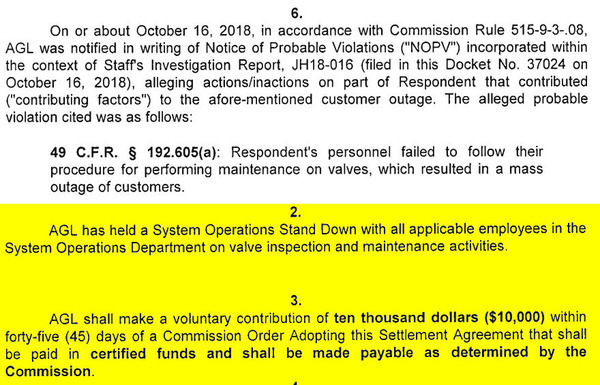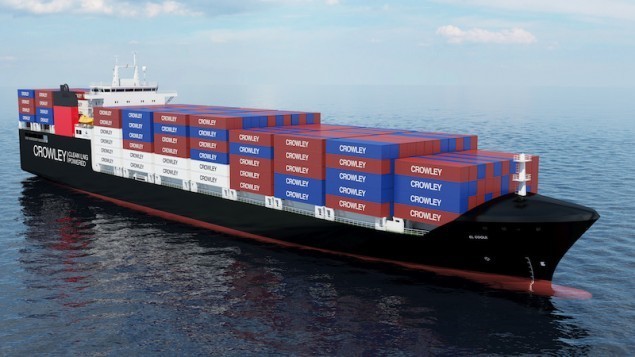More than the $250,000 proposed last September, but still only 15% of the $2,305,000 previously proposed by GA-PSC staff: that’s the proposed settlement that Atlanta Gas Light will have to pay for the explosion that blew up a coffeeshop in August 2018 and sent three women to hospital with third-degree burns. The incident for which even PHMSA asked for clarification of how serious it was.
Most of the larger proposed fine was apparently because of lack of investigation or reporting even after the event.

Photo: State Insurance Commission Office, via WALB
Edan Schultz, WALB TV, 14 February 2020, Settlement proposed in Homerville coffee shop gas explosion,
“Last year was staff’s estimate of the top penalty, should all infractions be fined at the maximum rate. In this proposed agreement, rather than simply fine AGL at the maximum rate, the PSC and AGL came up with a solution that will help prevent an accident like this from happening again,” said PSC spokesman Tom Krause.
![[Commissioner Jason Shaw (on right)]](https://www.wwals.net/pictures/2020-02-13--agl-homerville-settlement-proposed-psc/jason-shaw.jpg)
Commissioner Jason Shaw (on right)
Commissioner Jason Shaw said AGL’s “voluntary contributions” totaling $347,000 would help prevent further such incidents. The phrase he and Krause used was Continue reading

![[WWALS LNG Export Map]](https://www.wwals.net/pictures/2018-10-31--lng-map/2018-10-31--WWALS-LNG-export-map.jpg)

![[Commissioner Jason Shaw]](https://www.wwals.net/pictures/2019-09-17--agl-ga-psc/2019-09-17-13:56:10--shaw.jpg)
![[5701 Quarterman Road]](https://www.wwals.net/pictures/2019-09-16--agl-homerville-ga-psc/20181108_125235.jpg)
![[Fire Department List Homerville AGL]](https://www.wwals.net/pictures/2019-09-16--agl-homerville-ga-psc/Fire-Department-List-Homerville-AGL-0001.jpg)
![[AGL fines, more solar, coal ash disposal, and mercury]](https://www.wwals.net/pictures/2019-06-10--wwals-ga-psc/2019-06-10--WWALS-Shaw-GA-PSC-0001.jpg)
![[Please confirm these injuries involved in-patient overnight hospitalization.]](https://www.wwals.net/pictures/2019-09-17--agl-to-phmsa/AGL-Report-to-PHMSA-0001.jpg)


